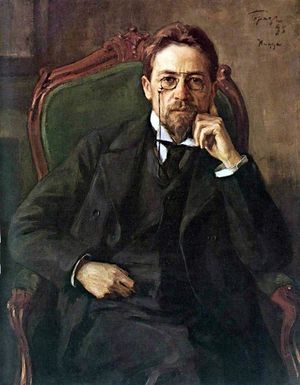
Russian author Anton Chekhov regaled generations with his short stories, which subtly blended humour and pain. His life was even more dramatic than his stories. Read on to find out..
Chekhov was born in 1860, in Taganrog, a provincial town on the shore of the Sea of Azov in Russia. The city often serves as a backdrop in his stories.
One day. Chekhov’s father, Pavel, who was running a grocery store, fled the country to escape bankruptcy, leaving behind his of six children in extreme poverty.
Chekhov, who had inherited his mother, Yevgeniya’s love for storytelling, started writing during this time to earn a living for his family and to pay for kiss nude studies. Making time between doses medical at the University of Moscow, he penned dramas with humorous and skits for theatres, along with short stories that he sold to magazines. In 1880, he published his first piece and treated his family to a cake bought with his earnings. By 1884, he had published 300 stories, sketches, jokes, and articles while also completing medical school.
A man of science
After graduating, he began to practise medicine in rural areas Dedicated towards working for poor families (as he had experienced poverty first hand), he did not take money from his needy patients. He even volunteered in public hospitals during epidemics. His love for the medical profession is evident from the fact that the central characters in many of his stories and plays are doctors. He often joked that “Medicine is my lawful wife and literature is my mistress.
SIBERIAN ADVENTURE
On one of his notable scientific excursions, he traversed 5,000 miles of the vast Siberian wasteland to conduct a census of the exiled prisoners on the remote island of Sakhalin. He used a buggy, a horse and even a boat to reach the island. His observations throwing light on the deplorable conditions of the inmates as regarded as important works of science even today.
Changing the literary landscape
While the large volume of his work made Chekhov a popular name, he was unhappy with the quality of his early works. “Oh with what trash I began he is known to have remarked. Thus began a second stage in his writing, in which he wrote with increased seriousness.
He privately printed his first book of short stories. “Tales of Melpomene in 1884, but it went unnoticed because it was mistakenly shelved in the children’s section. His next work, “Montley Stories” secured his reputation as a major Russian writer, and his short story collection “In The Twilight” won him the prestigious Pushkin Prize in 1888.
Chekhov’s Gun
Chekhov’s genius was not limited to his plays and stories. He was a prolific letter writer. Through his letters, he offered pieces of advice to other writers. Today. his advice has come to be widely regarded as important principles of writing. One of the most famous principles is what is known as Chekhov’s Gun. He defined it in a letter to his co-writer Lazarev-Gruzinsky in November 1889: “One should not put a loaded rifle onto the stage if no one is thinking of firing it. If in the first act you have long a pistol on the wall, then in the following one, it should be fired. Otherwise don’t put it there.
OH REALLY?
- Compared to other writers of his time, Chekhov had an extremely short career. He wrote only four major plays – “The Seagull”, “Uncle Vanya”, “Three Sisters” and The Cherry Orchard”, but 800-odd short stories.
- Chekhov once crossed 5,000 miles of Siberian wasteland on a buggy and horse to conduct a census of the exiled prisoners on the remote Sakhalin island.
- He renounced the theatre following negative reviews to his play, “The Seagull” in 1896.
- “The Lady with the Dog” is regarded as the greatest short story ever written.
- Like the character Vanya in “A Classical Student”. Chekhov too failed an ancient Greek exam in school and had to repeat the year.
- Failing health
In 1886, Chekhov experienced lung trouble, an early symptom of tuberculosis that would eventually kill him. He continued to practise medicine until 1898 although he could now support his family and himself on his writing. As his health deteriorated, Chekhov spent much of his time recuperating in health resorts in Germany. In 1904, he died at the age of 44 in Badenweiler. Chekhov left a lasting impact on Russian literature.
Picture Credit : Google
